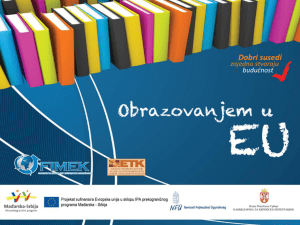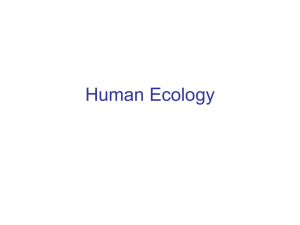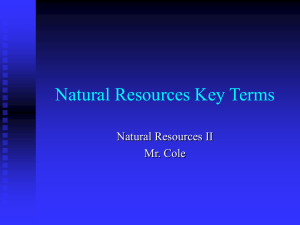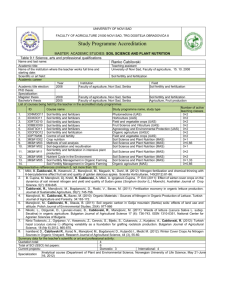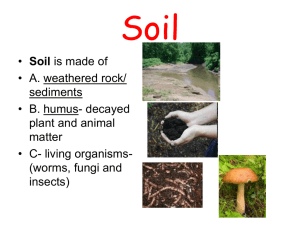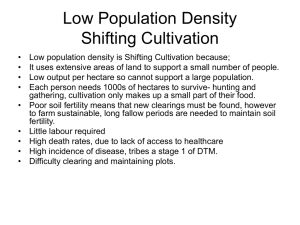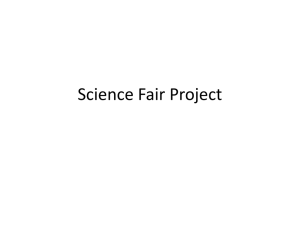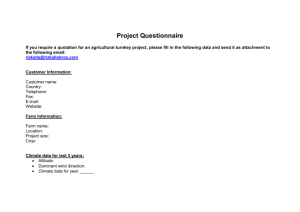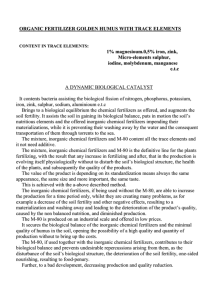UNIVERSITY OF NOVI SAD FACULTY OF AGRICULTURE 21000
advertisement
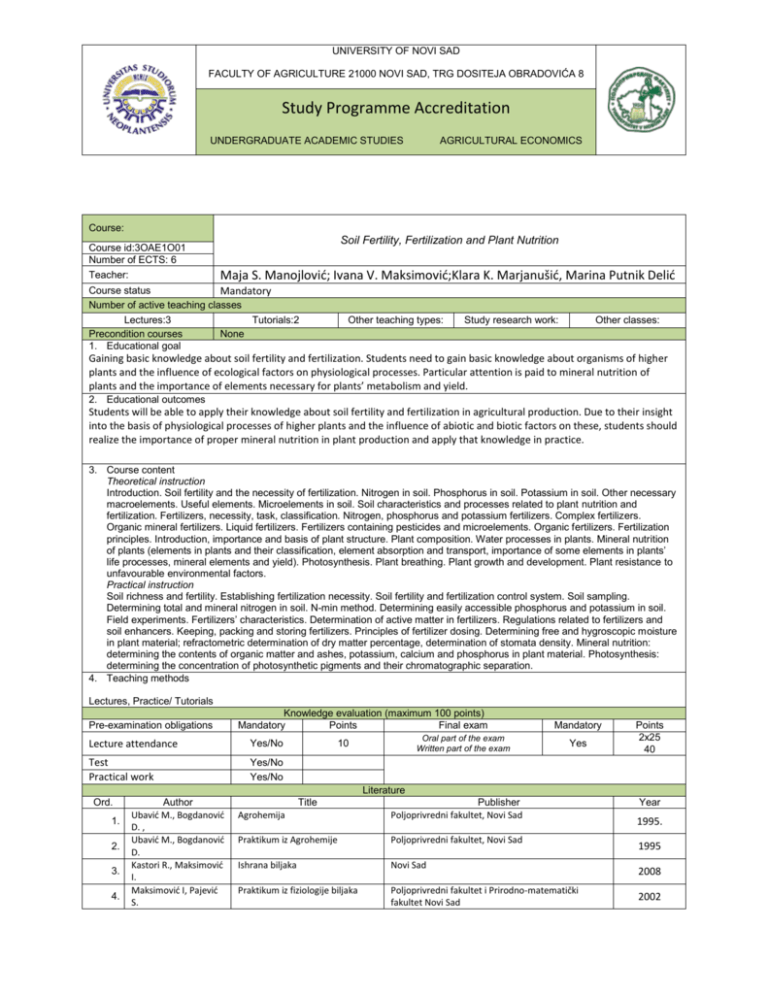
UNIVERSITY OF NOVI SAD FACULTY OF AGRICULTURE 21000 NOVI SAD, TRG DOSITEJA OBRADOVIĆA 8 Study Programme Accreditation UNDERGRADUATE ACADEMIC STUDIES AGRICULTURAL ECONOMICS Course: Course id:3ОАЕ1О01 Number of ECTS: 6 Teacher: Soil Fertility, Fertilization and Plant Nutrition Maja S. Manojlović; Ivana V. Maksimović;Klara K. Marjanušić, Marina Putnik Delić Course status Mandatory Number of active teaching classes Lectures:3 Tutorials:2 Precondition courses None 1. Educational goal Other teaching types: Study research work: Other classes: Gaining basic knowledge about soil fertility and fertilization. Students need to gain basic knowledge about organisms of higher plants and the influence of ecological factors on physiological processes. Particular attention is paid to mineral nutrition of plants and the importance of elements necessary for plants’ metabolism and yield. 2. Educational outcomes Students will be able to apply their knowledge about soil fertility and fertilization in agricultural production. Due to their insight into the basis of physiological processes of higher plants and the influence of abiotic and biotic factors on these, students should realize the importance of proper mineral nutrition in plant production and apply that knowledge in practice. 3. Course content Theoretical instruction Introduction. Soil fertility and the necessity of fertilization. Nitrogen in soil. Phosphorus in soil. Potassium in soil. Other necessary macroelements. Useful elements. Microelements in soil. Soil characteristics and processes related to plant nutrition and fertilization. Fertilizers, necessity, task, classification. Nitrogen, phosphorus and potassium fertilizers. Complex fertilizers. Organic mineral fertilizers. Liquid fertilizers. Fertilizers containing pesticides and microelements. Organic fertilizers. Fertilization principles. Introduction, importance and basis of plant structure. Plant composition. Water processes in plants. Mineral nutrition of plants (elements in plants and their classification, element absorption and transport, importance of some elements in plants’ life processes, mineral elements and yield). Photosynthesis. Plant breathing. Plant growth and development. Plant resistance to unfavourable environmental factors. Practical instruction Soil richness and fertility. Establishing fertilization necessity. Soil fertility and fertilization control system. Soil sampling. Determining total and mineral nitrogen in soil. N-min method. Determining easily accessible phosphorus and potassium in soil. Field experiments. Fertilizers’ characteristics. Determination of active matter in fertilizers. Regulations related to fertilizers and soil enhancers. Keeping, packing and storing fertilizers. Principles of fertilizer dosing. Determining free and hygroscopic moisture in plant material; refractometric determination of dry matter percentage, determination of stomata density. Mineral nutrition: determining the contents of organic matter and ashes, potassium, calcium and phosphorus in plant material. Photosynthesis: determining the concentration of photosynthetic pigments and their chromatographic separation. 4. Teaching methods Lectures, Practice/ Tutorials Pre-examination obligations Knowledge evaluation (maximum 100 points) Mandatory Points Final exam Lecture attendance Yes/No Test Practical work Yes/No Yes/No Oral part of the exam Written part of the exam 10 Mandatory Yes Points 2x25 40 Literature Ord. 1. 2. 3. 4. Author Ubavić M., Bogdanović D. , Ubavić M., Bogdanović D. Kastori R., Maksimović I. Maksimović I, Pajević S. Title Agrohemija Publisher Poljoprivredni fakultet, Novi Sad Praktikum iz Agrohemije Poljoprivredni fakultet, Novi Sad Ishrana biljaka Novi Sad Praktikum iz fiziologije biljaka Poljoprivredni fakultet i Prirodno-matematički fakultet Novi Sad Year 1995. 1995 2008 2002
